Spain lives its culture daily, from the fire of flamenco to the pageantry of festivals. Yet nothing captures its essence more profoundly than cuisine — a language of landscapes and traditions, where food is more than nourishment: it is memory, community, and the ultimate celebration of life.
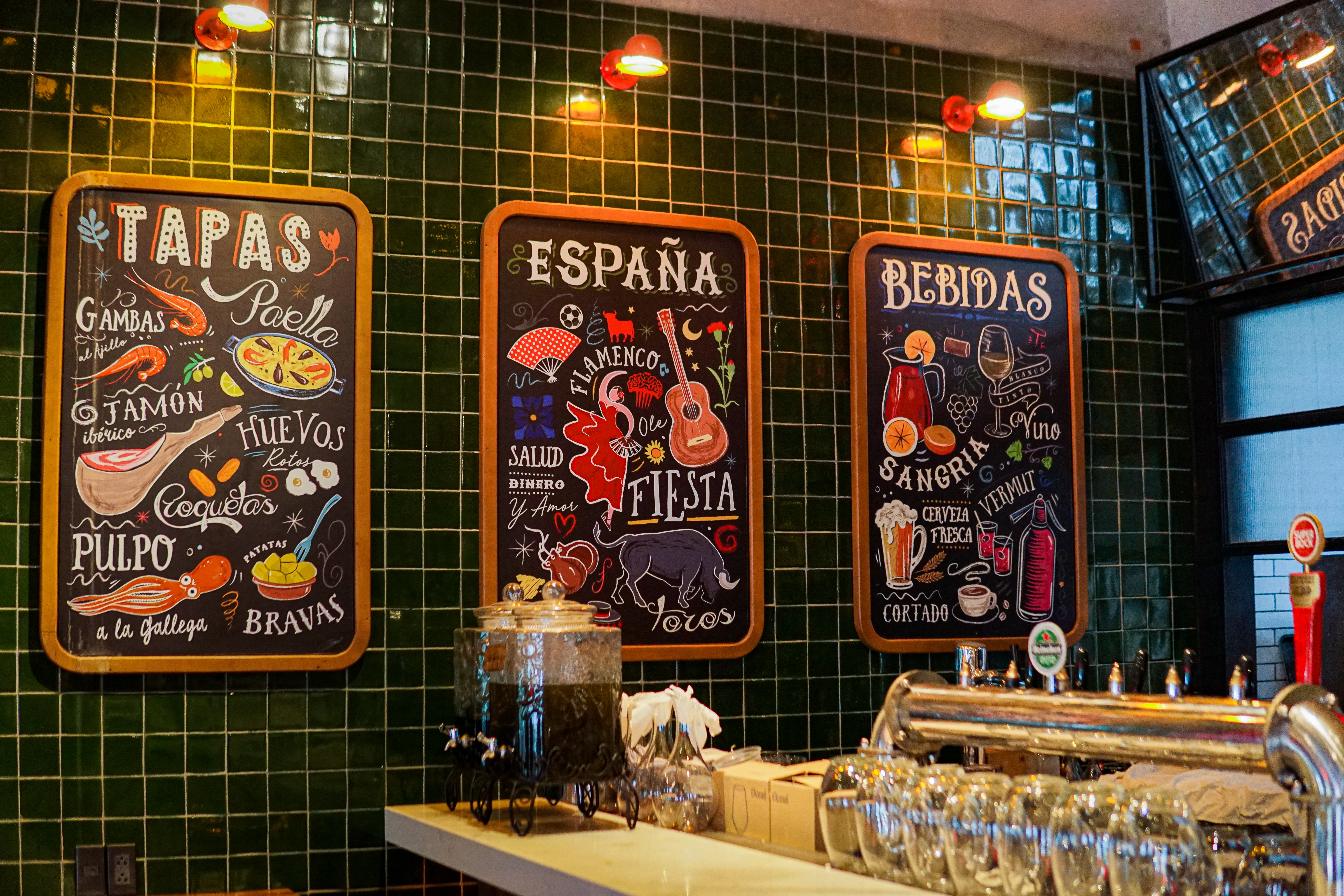
Spain breathes culture in its everyday rhythms. Each region, from the northern shores of Galicia to the sunbaked plains of Andalusia, safeguards its own traditions. Festivals, dances, and rituals define local identities, but nowhere does Spain’s diversity converge more naturally than at the table. In Spain, cuisine is a canvas of history and geography, an art form that reflects a people’s ingenuity and spirit. Meals are more than sustenance; they are a communal act, an invitation to belong.
A Geography of Flavors
To taste Spain is to embark on a journey through its varied landscapes. In Galicia, seafood is not just a specialty but a way of life, echoing the raw strength of the Atlantic. Andalusia refreshes with gazpacho and salmorejo, soups chilled like shade under whitewashed arches. The Basque Country surprises with pintxos — culinary jewels on bread that embody both creativity and conviviality.
Catalonia speaks in Mediterranean tones, its rice dishes and suquets of fish telling stories of sea and sun. In Castile, roast lamb and suckling pig symbolize a pastoral tradition where simplicity exalts quality. Valencia, meanwhile, gives the world paella — a dish born of farmland and fire, yet now emblematic of Spain’s global identity. Extremadura is home to the noblest of delicacies: jamón ibérico, its deep flavor carrying centuries of tradition. La Rioja offers an inseparable duet of food and wine, where gastronomy and viticulture weave one tapestry. Together, these flavors form a mosaic — distinct yet harmonious, as if Spain itself were laid out as a great banquet where each region adds its voice.
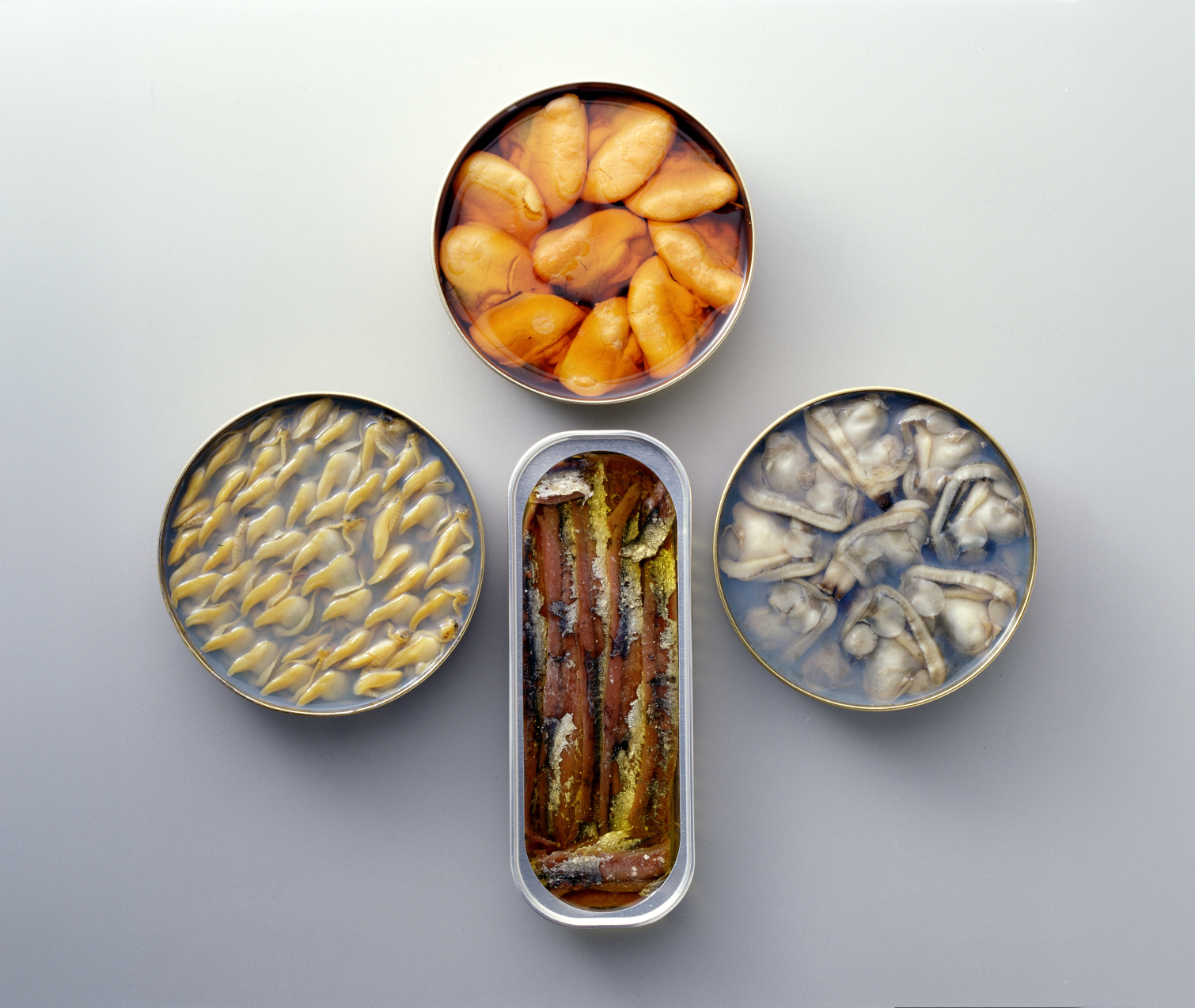
Food as a Social Symphony
Spanish cuisine extends beyond ingredients to embrace a philosophy of sharing. Meals unfold not in solitude but in company. Weekday lunches often stretch long, spilling into lively debates; weekend gatherings unite multiple generations around one table. Food is placed at the center — tapas passed from hand to hand, paella shared directly from its pan.
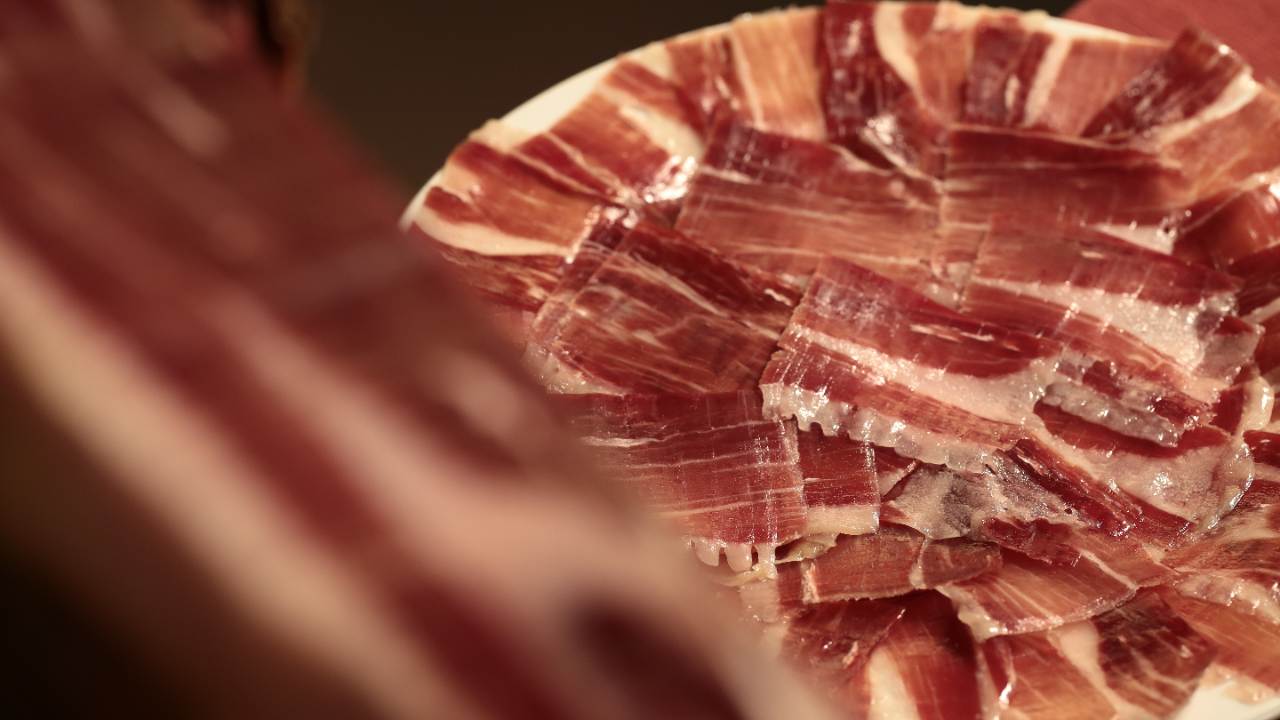
Generosity is expressed in abundance: plates refilled, glasses topped, conversation flowing as freely as wine. To eat in Spain is to partake in a ritual where community is as important as flavor. This practice is not occasional but constant. Dining together, or simply gathering for a drink, is one of the most common social acts in Spanish life. It reflects how deeply food and culture are intertwined, and how identity itself is savored, bite by bite.
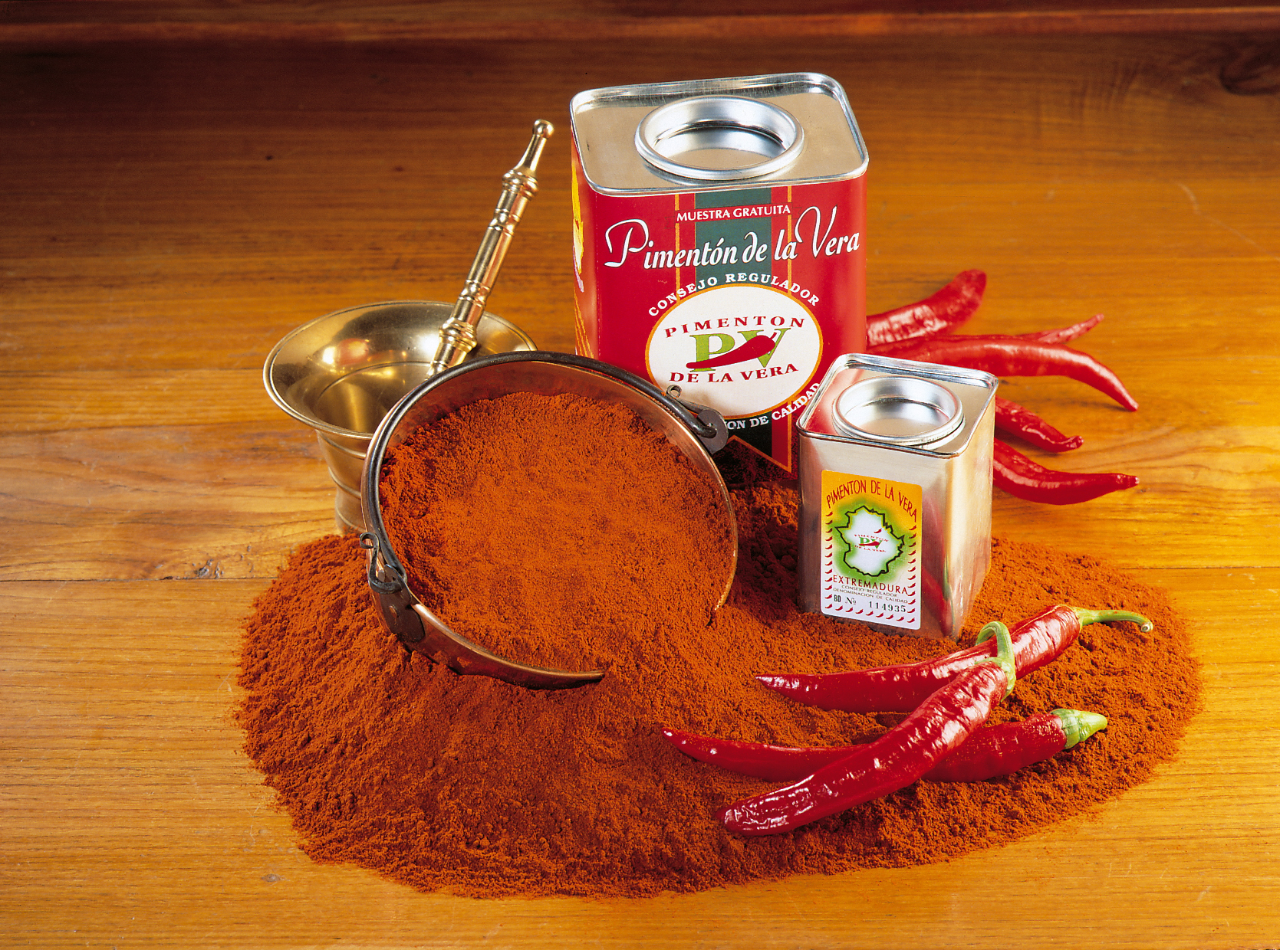
Spain Abroad: Gastronomy as Cultural Ambassador
This spirit of hospitality travels wherever Spanish cuisine is served. A tortilla de patatas, a plate of croquetas, or a slice of jamón ibérico carries with it not only taste but also memory. For those who have never set foot in Spain, these dishes become their first introduction to the country’s identity — a synthesis of tradition, warmth, and celebration.
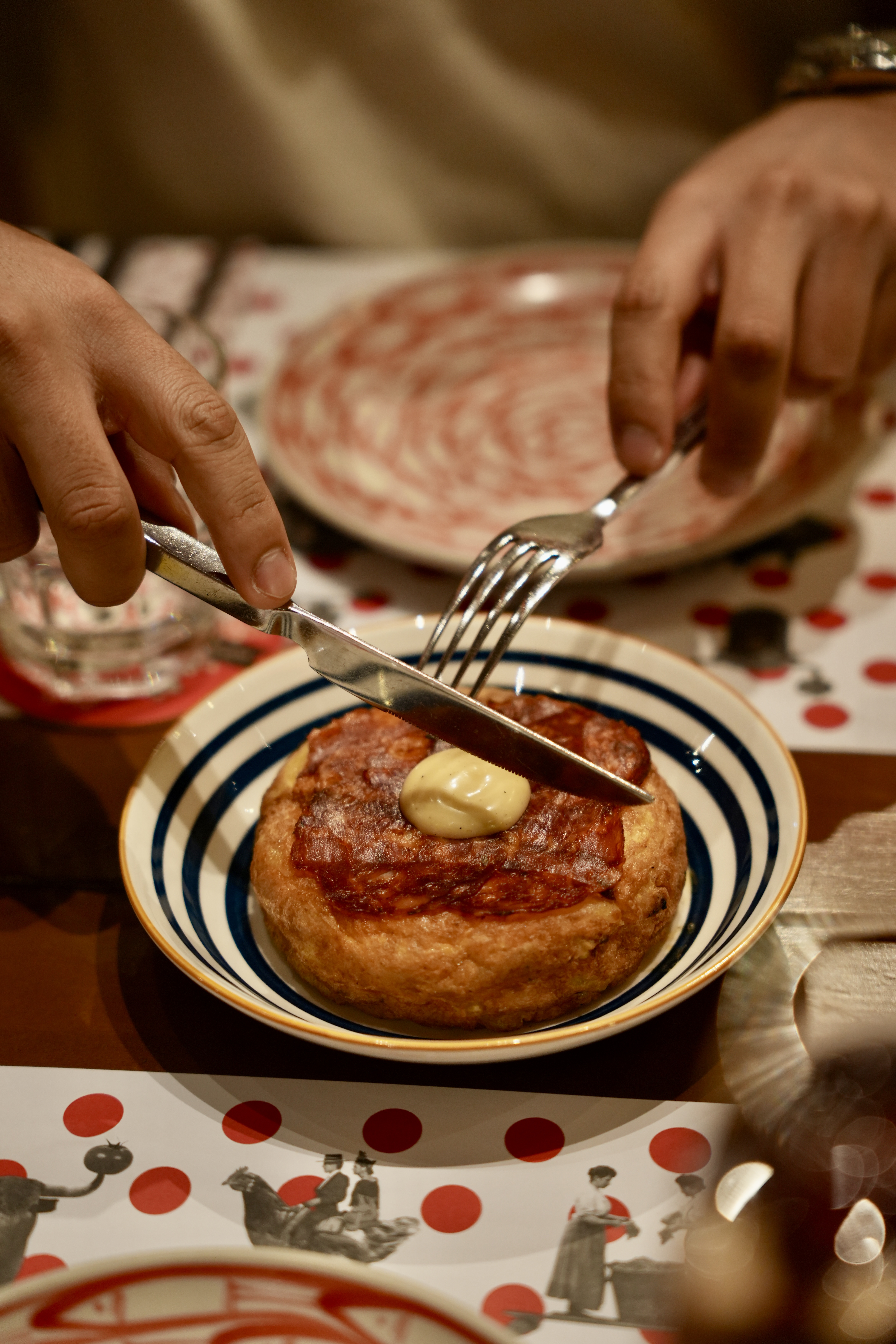
Recognizing the power of gastronomy as cultural heritage, ICEX Spain Trade & Investment established certification programs to safeguard authenticity abroad.The Restaurants from Spain seal is awarded to international restaurants that remain faithful to Spanish tradition. To qualify, they must respect recipes, use genuine products, and have chefs or representatives who can tell the story behind each dish.
In parallel, the Colmados from Spain certification celebrates food shops abroad that echo the traditional Spanish colmado — neighborhood groceries filled with olive oil, wine, cheese, and preserves, where commerce and community intertwine. These certifications act as guardians of authenticity, ensuring that when Spanish cuisine crosses borders, it retains its soul.
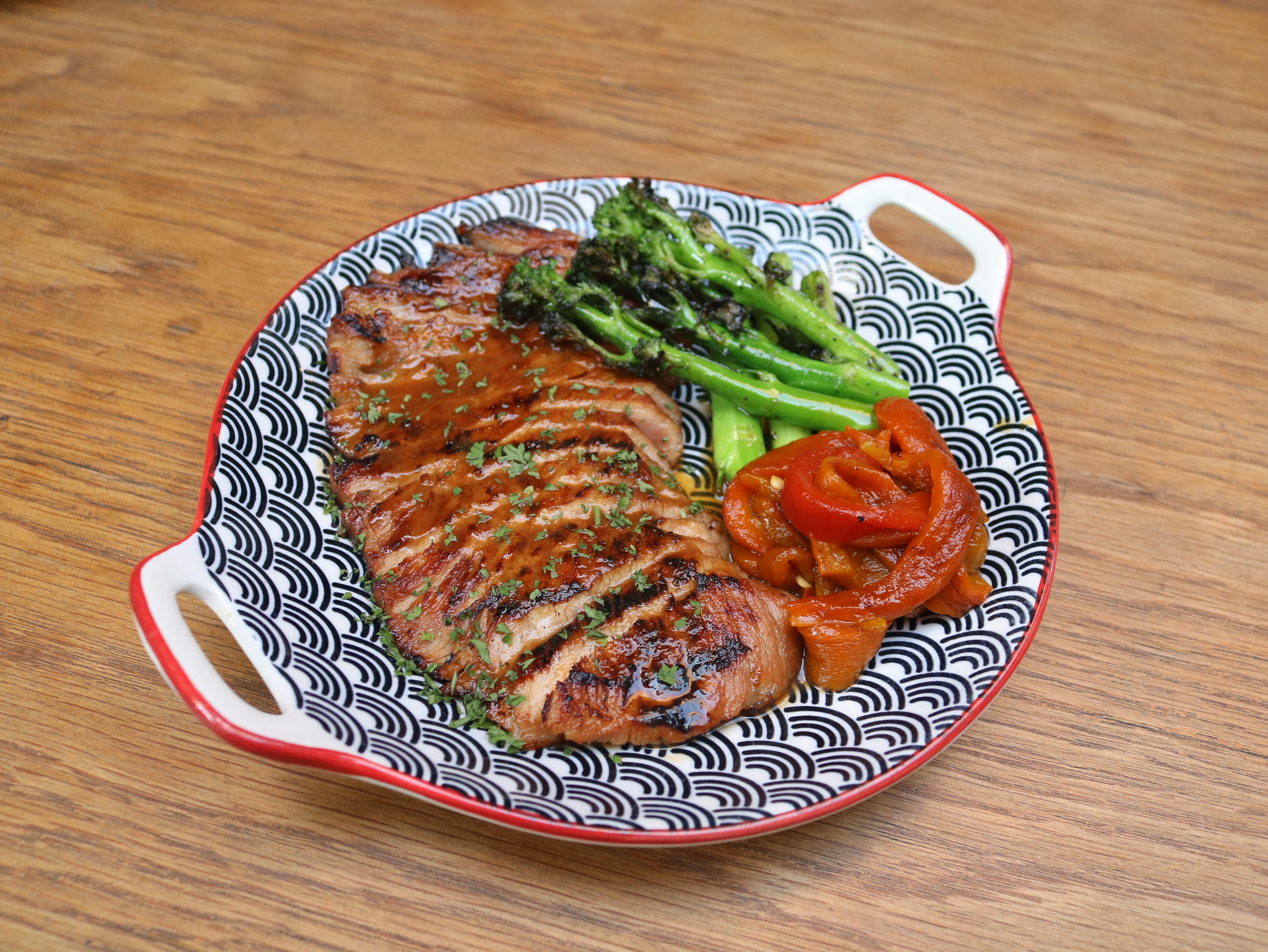
Guardians of Authenticity
Today, over 500 restaurants across 50 countries proudly display the Restaurants from Spain badge, while nearly 80 certified colmados bring Spanish flavors to international shelves. Each certification is more than a symbol — it is a commitment to integrity, an assurance that Spain’s culinary spirit remains intact even far from home.
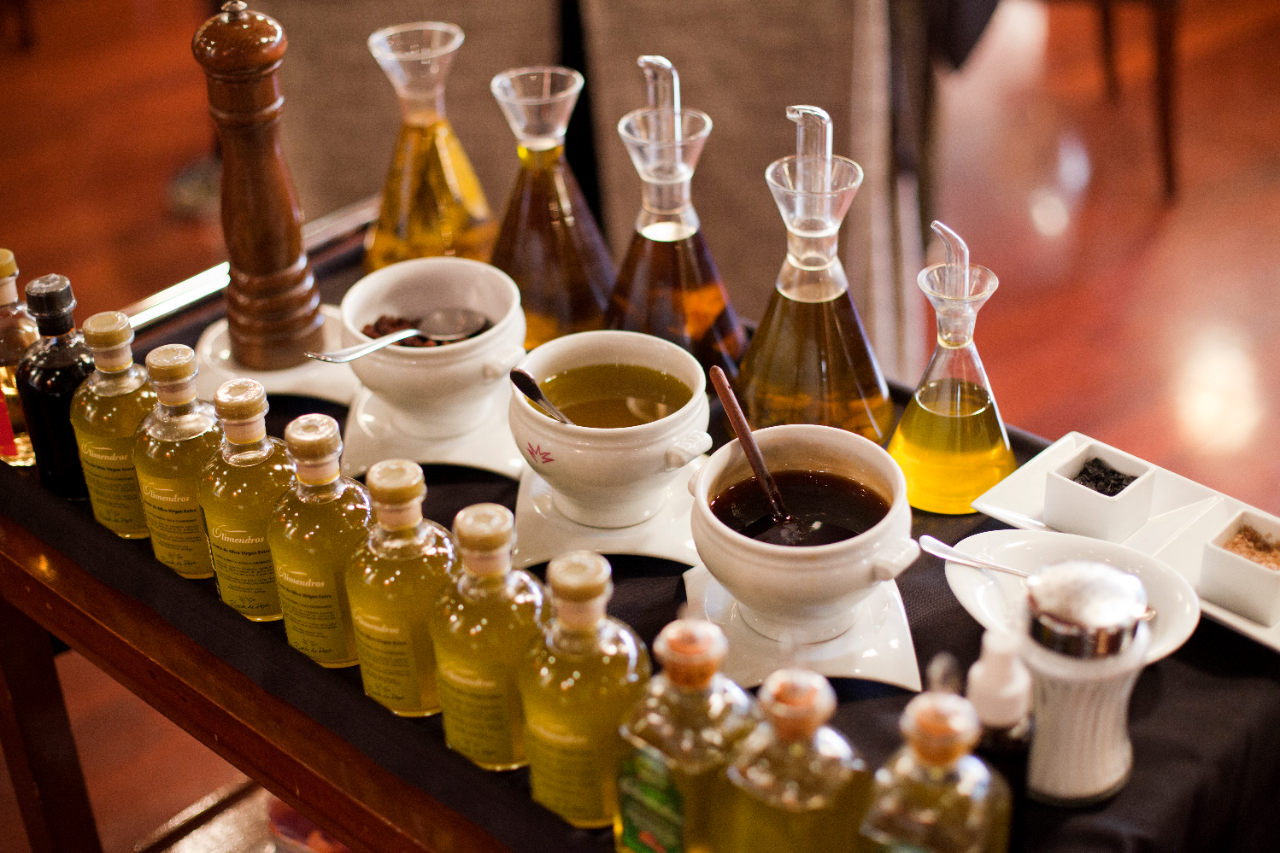
Vietnam has emerged as a leader in Asia in embracing this initiative. Already, 11 restaurants across Ho Chi Minh City, Hanoi, Danang, Phu Quoc, Hoi An, Nha Trang proudly bear the Restaurants from Spain seal — more than many other countries in the region. They have become bridges between cultures, allowing Vietnamese diners to experience Spain not only through food but also through its traditions and stories.
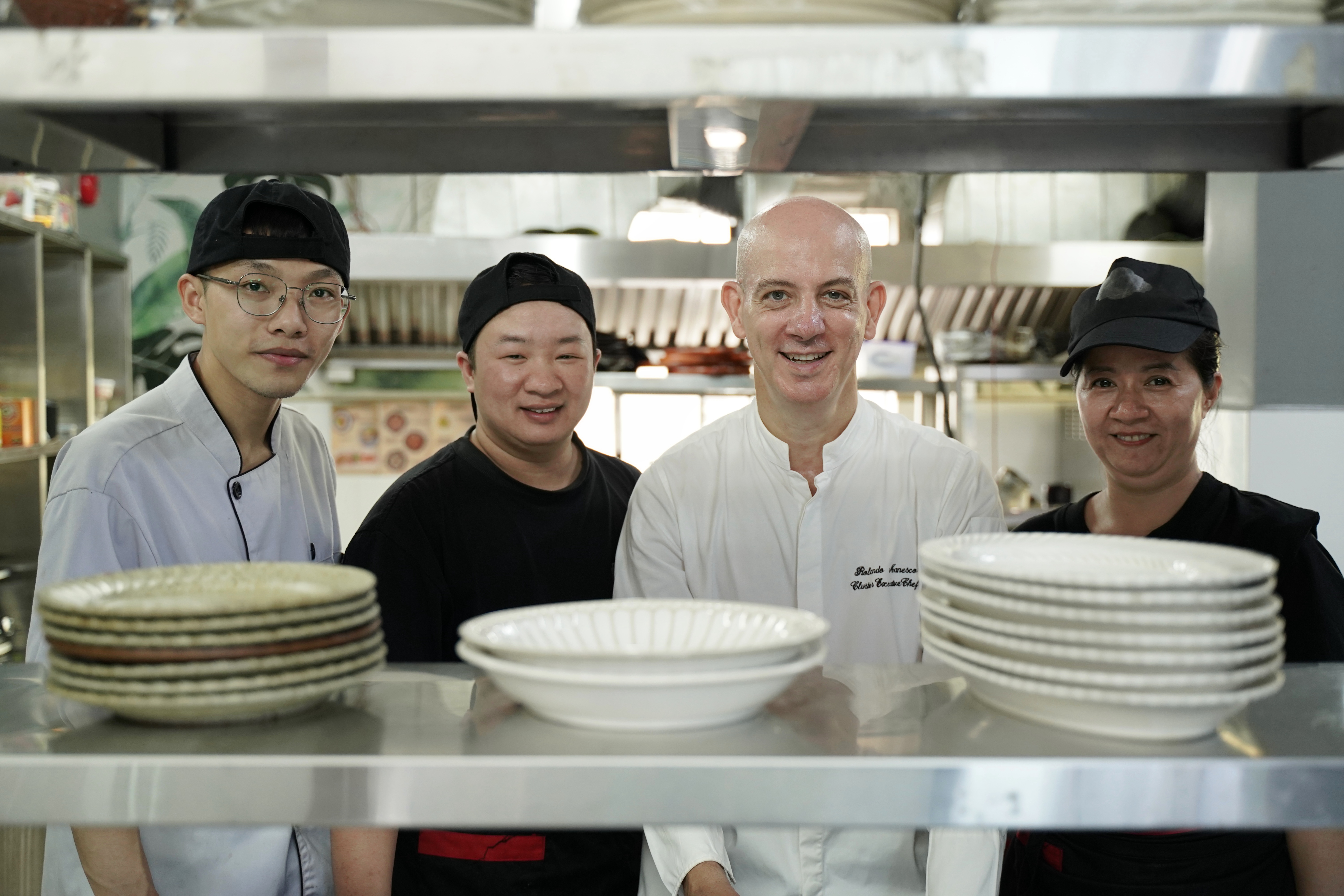
Certified Restaurants in Vietnam
• Sabor Restaurant & Bar (Ho Chi Minh City)
• OLÁ Beach Club by SOL Meliá Phu Quoc (Phu Quoc)
• Octo Tapas Restobar (Ho Chi Minh City)
• Olé Saigon Restaurant (Ho Chi Minh City)
• Tomatito Saigon (Ho Chi Minh City)
• Iberico Tapas y Vino I (Ho Chi Minh City)
• Iberico Tapas y Vino II (Ho Chi Minh City)
• Iberico Tapas y Vino III (Hoi An)
• Capos (Hanoi)
• My Casa (Da Nang)
• Hispania Nha Trang (Nha Trang)
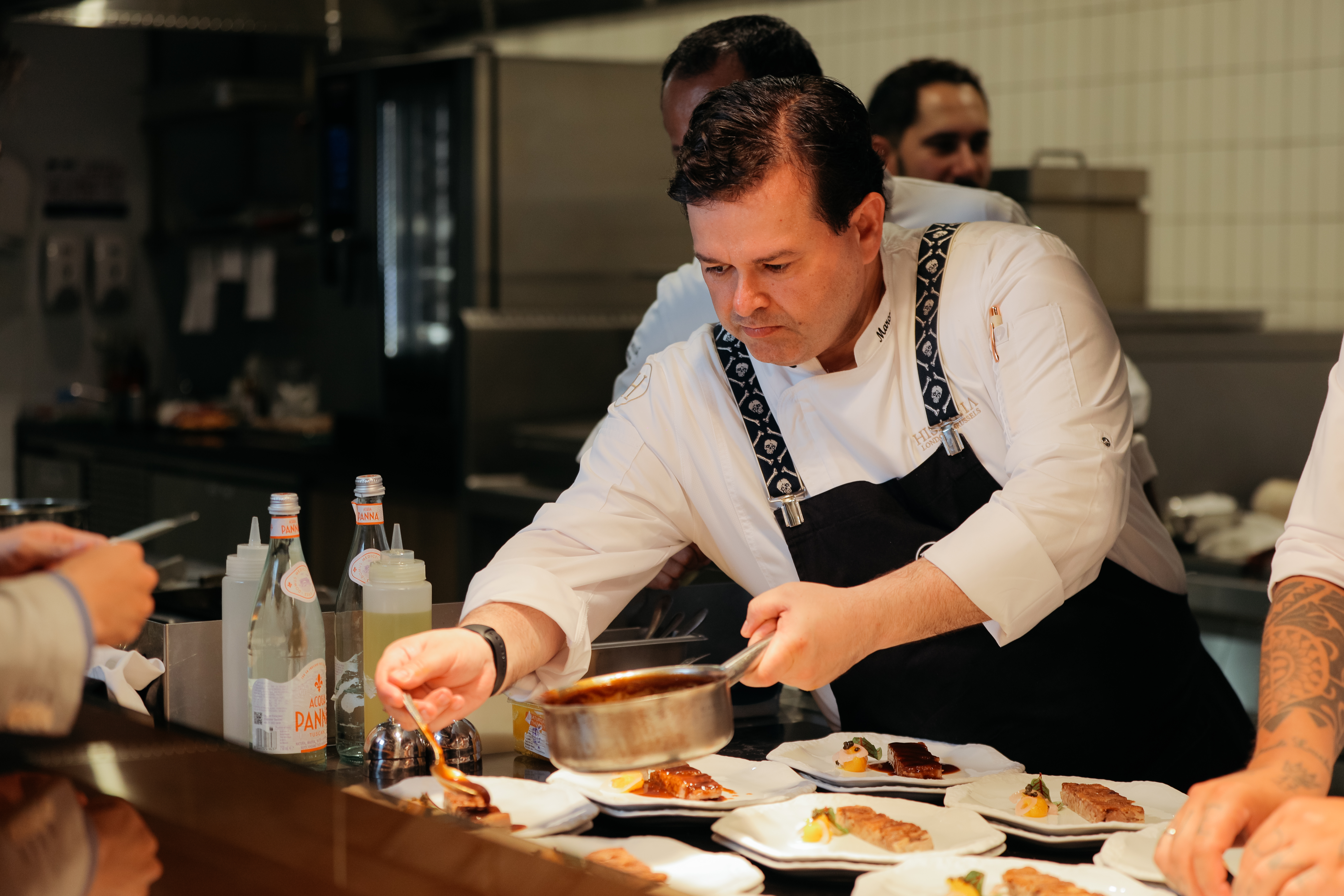
Each of these venues carries a dual responsibility: to serve excellent food and to represent the cultural integrity of Spain. They are dining rooms, yes, but also embassies of taste — spaces where authenticity and artistry converge.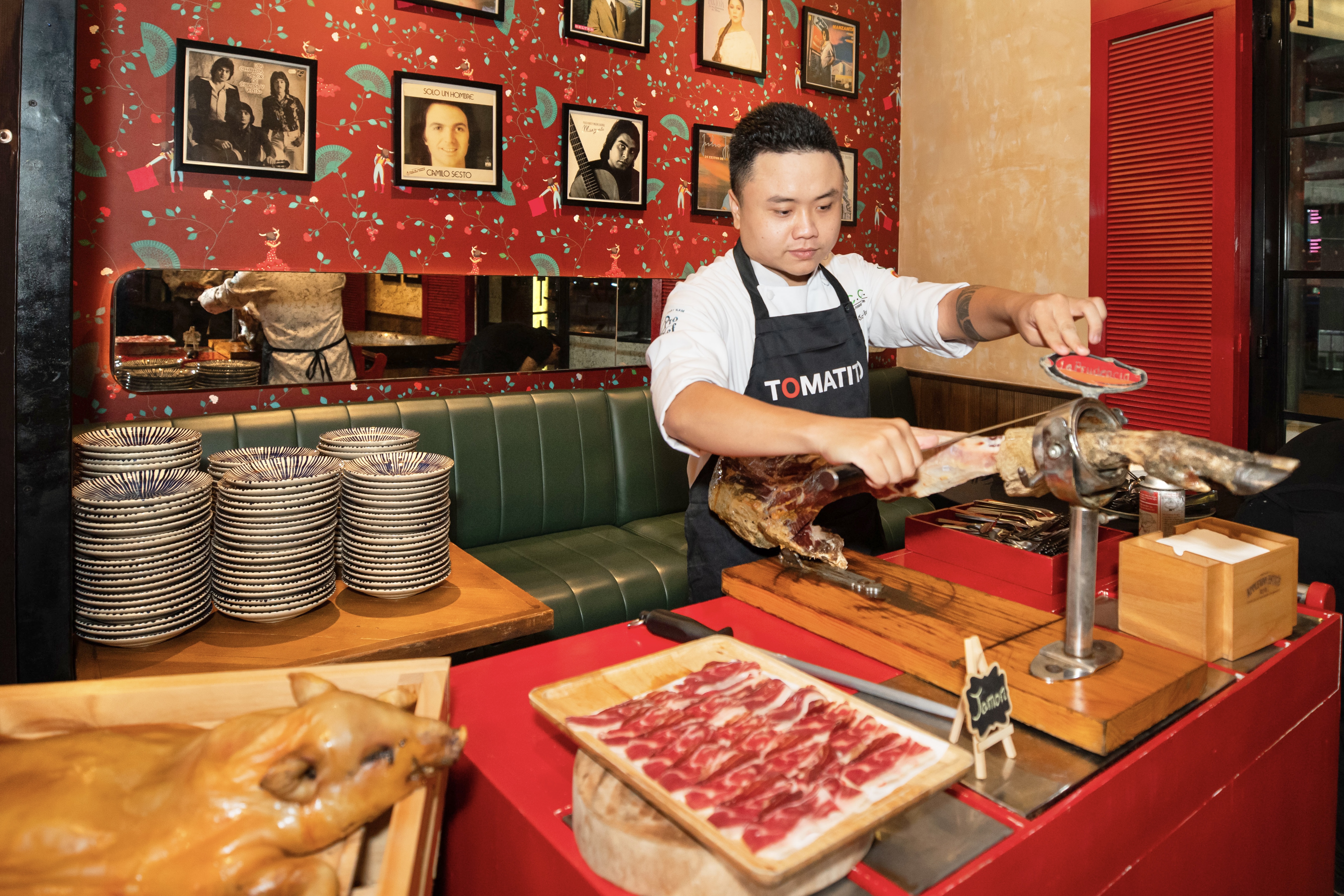
A Living Heritage
Spanish cuisine is one of the most diverse in the world, but its greatest strength lies not in variety alone. It lies in its ability to transform meals into memories, to turn tables into stages for conversation, and to make food a language of generosity.
From Galicia’s seafood to Valencia’s paella, from Andalusia’s flamenco rhythms to Rioja’s vineyards, Spain tells its story through flavor. And thanks to initiatives like Restaurants from Spain and Colmados from Spain, that story is told with integrity across the globe — including in Vietnam, where the seal of authenticity ensures every bite speaks of heritage.
Spain, after all, is not only a country of festivals and traditions. It is a country that lives through its cuisine, where the act of eating is inseparable from the act of being. To share a table is to share Spain itself: a nation that turns food into culture, and culture into an enduring celebration.
